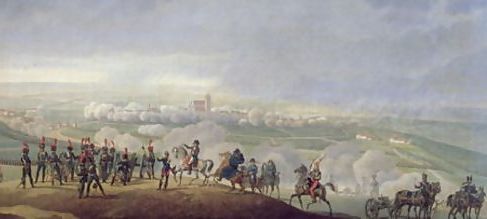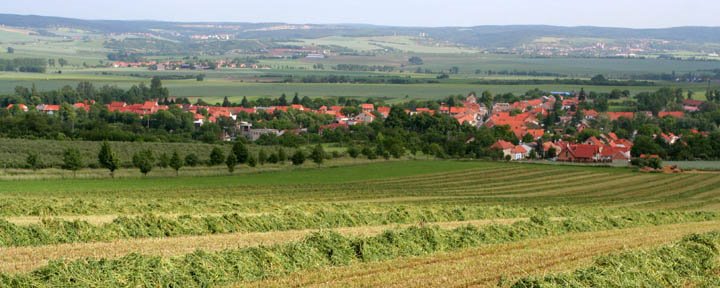Deprivation
We witnessed deprivation in Eastern Europe. It wasn't as pronounced in Czechoslovakia as it was in Poland, but it was there throughout. Deprivation and its accompanying fear. The fear that comes from a pervasive sense that one's needs won't be met. It was both a memory of deprivation and a current experience of deprivation. And there was despair too. Despair that there would never be an end to this deprivation.
It was the opposite of abundance. Everywhere we went, we saw bare shelves -- no produce in Czechoslovakia (in summer!), no milk in Poland. Restaurants weren't accustomed to serving meals, and stores had so few goods to sell.
An ornate row house in Brno
And there was also aesthetic deprivation. The new buildings were all so ugly and cold and devoid of character. I wanted to find a peasant skirt to buy as a souvenir but I didn't come anywhere close to finding one. Everyone in Brno seemed to wear one of two, very basic skirts, varying mostly in length. We admired the older architecture and saw some graffiti, but in general there were so few outward expressions. It felt like creativity and sensory experience were shut down and had been for long enough that they were buried deep.
Graffiti in Brno
I returned home from the trip mourning for the lost yiddishkeit culture, but from this vantage point, I realize it was not the only lost culture. Everything was on hold, smothered. We outsiders knew that things would soon change, but the people we met did not yet seem to see the light at the end of the tunnel.
On a more personal note, I am finding that this month I am moving at a slower pace, wanting my writing to have a chance to develop. I have been drawing and journaling offline, needing that space alongside this online medium. I worked last week with fear and danger, spending time exploring what I am afraid of and what makes me feel endangered. I tried to start with the sensation of fear: the tension that rises in my body as an effort to protect myself from what I fear.
In my typical fashion, I quickly began classifying and found that everything seemed to fall pretty neatly into three categories: fear of pain, fear of rejection and hatred, and fear of annihilation.
And then today, after a little meditation, I lay on my back simply feeling whatever sensations arose, with the intention of discovering what I would write about today. My mind traveled to Eastern Europe, and I immediately felt the fear, the pervasive fear. And so I wondered, which category does this fear fall into? And the word deprivation arose, loud and clear.
Where does deprivation fall in my three categories? I found that I wasn't so sure. I guess it's most like annihilation: annihilation is kind of an ultimate deprivation. But maybe deprivation is its own category. It's so basic: our need to be fed, clothed, and sheltered. Our need to engage our senses. I now recognize the fear of deprivation in myself, but wow am I blessed! The very fact deprivation did not enter into my thinking initially is such a clear indication that for the most part I am lucky enough to have my needs met. For that good fortune, and for all the abundance in my life, I am so very grateful.
White, 4.10.07





